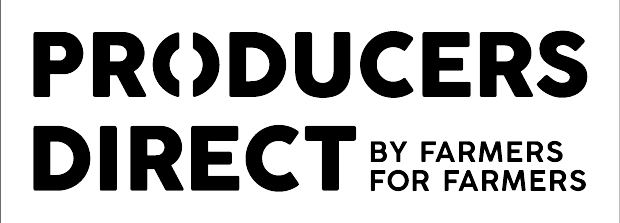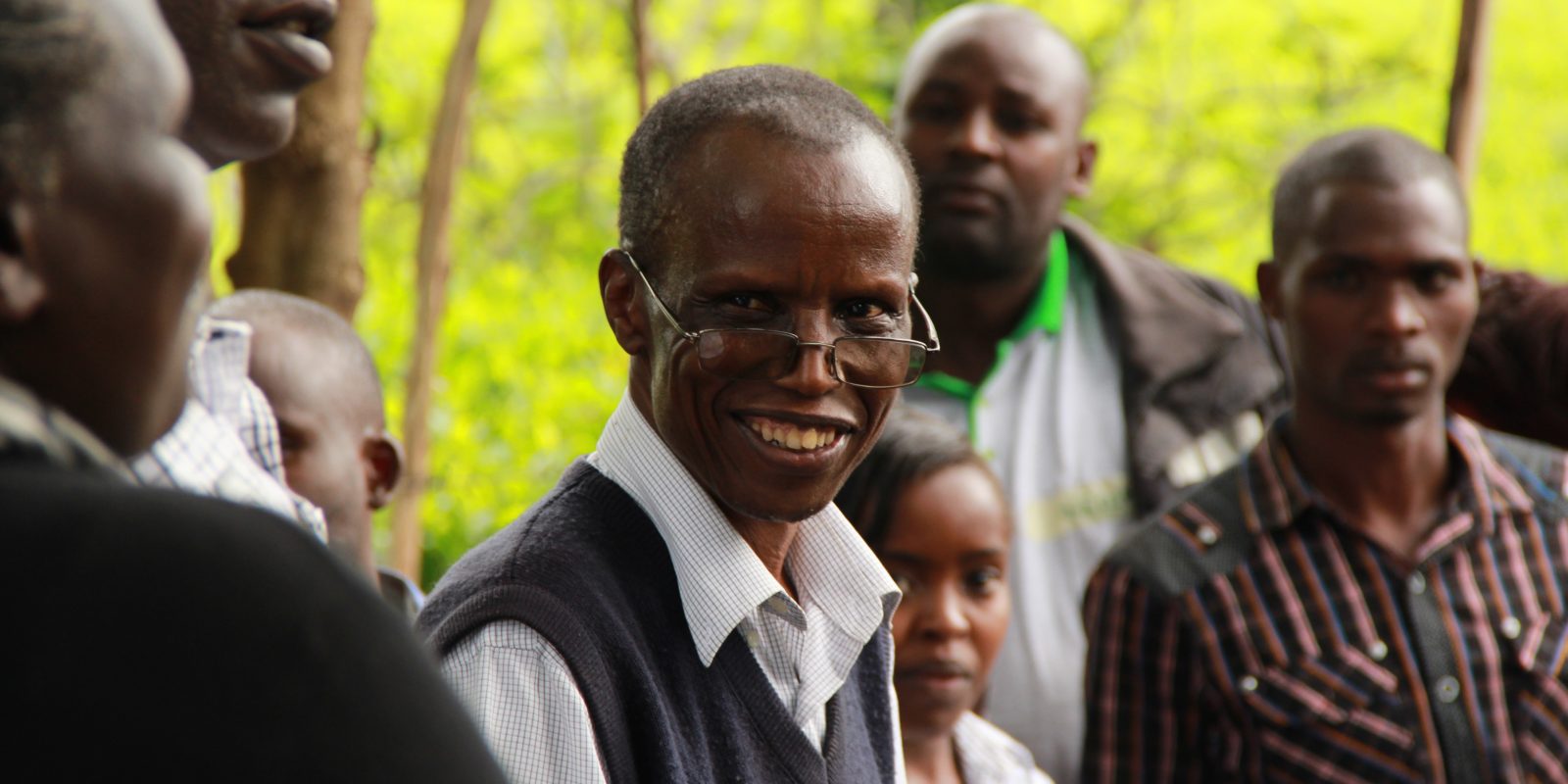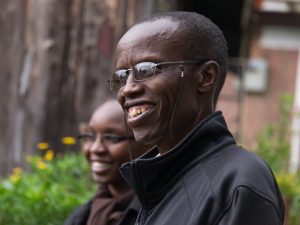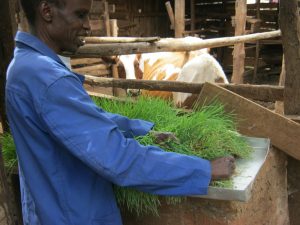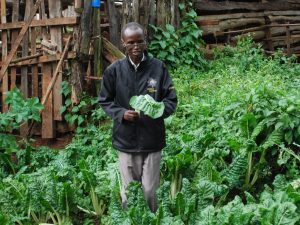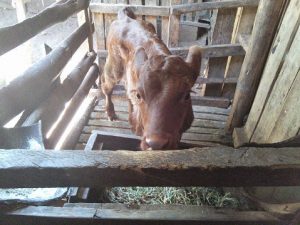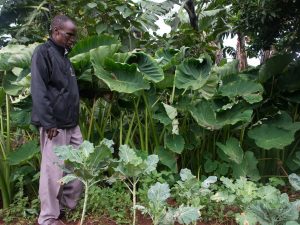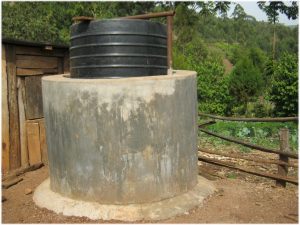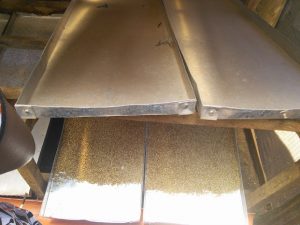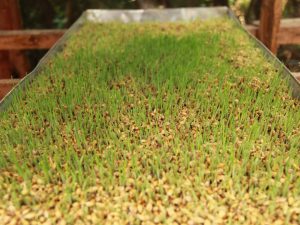In the west of Kenya, spread across the Nandi Hills, the Sireet Outgrower Empowerment Programme’s (Sireet-OEP) smallholder farmers grow, pick and sell their tea. Although smallholders are not generally recognised as innovators, farmers facing poverty, food insecurity and climate change, among other concerns, are driven to develop innovative solutions to these challenges. In this way, they become a rich source of experience and expertise and Cafedirect Producers’ Foundation works closely with smallholders to enable farmers to share this valuable knowledge across its farmer networks.
One of the main ways of doing this is through the development of “Centres of Excellence” (CoEs) in which demonstration sites are established as living, learning classrooms where farmers can test new ideas and train visiting farmers to try them on their own farms. These sites are run by lead farmers who are working together to develop a knowledge bank of innovative ideas and establish best practice in combating a range of challenges.
One such lead farmer is Luke Metto, a retired teacher with a vibrant sense of humour and a passion for innovative solutions to challenges on his farm. Producers Direct came across Luke during his participation in an early project with Sireet-OEP in 2010. At this time members Sireet-OEP were clearly seeing the effects of climate change in the region and Luke himself had expressed a growing concern about the reduction of land sizes in his community, resulting in an intrusion of farms into the forests.
Price volatility, coupled with decreasing yields due to a changing climate, mean that farmers’ incomes and livelihoods are under constant threat. Therefore, relying on a single crop is a risky business for smallholder farmers. In order to alleviate the risks associated with these changes, Producers Direct worked with Sireet-OEP on empowering farmers to seek new ways of using their existing expertise and knowledge of the land to diversify their incomes.
Now a lead farmer at the newly formed Sireet-OEP Center of Excellence for Microenterprises, Luke uses his influence as a community leader to show other smallholders how to farm innovatively on a small piece of land.
His own site 3 acre plot is well organised into sections, maximizing its use and potential. He has created a kitchen garden to grow fresh vegetables; a series of beehives producing honey; and, owing to what he learned on a farmer exchange visit, and artificial wetland on which he is able to grow some of the tallest Arrow Root plants that local extension workers have ever seen.
Most interestingly, he uses simple hydroponic techniques to help develop a zero-grazing unit for cows. Hydroponics is a farming technology that does not require any soil but instead uses a water based solution that contains all the nutrients plants need to grow. They use very little space with a guaranteed high yield. This means that they can help to feed their livestock on limited plots of land, enabling further possibilities for income generation. Income from his small microenterprises has allowed him to further invest in the farm by building a biogas tank and also started another microbusiness from rabbit keeping.
When discussing the future, and potential new projects, he is excited about expanding his current enterprises but is always open to suggestions, always looking to develop newer and more productive enterprises.
As Luke’s and his fellow farmers’ demonstration sites continue to flourish, visitors from other farming groups are beginning to visit to find out more. Farmers who have visited get ideas that they can use, and share their thoughts on the development. The Centre of Excellence network also makes seed funds available, allowing visiting smallholders to try the new approaches they have discovered on their own farms. This results in a sustainable support model which enables African producers to improve their knowledge, decision-making skills and livelihoods.
